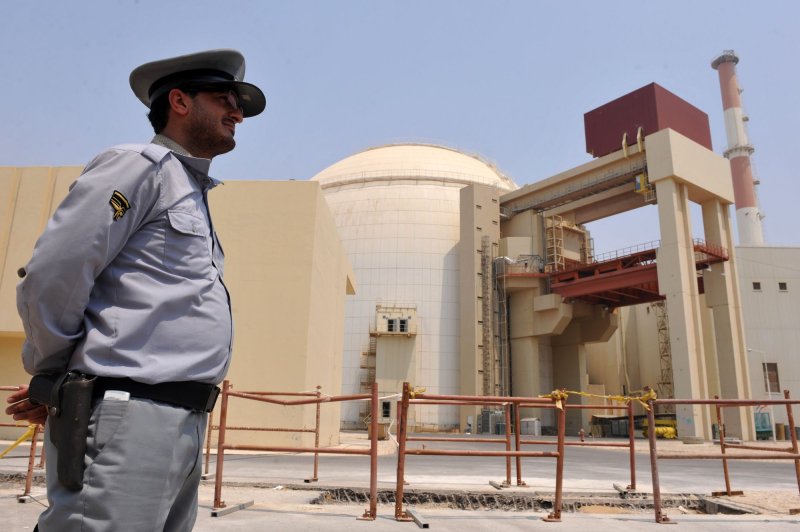1 of 3 | A view of Iran's first nuclear power plant is seen after it was opened by Iranian and Russian engineers in Bushehr, Iran, south of Tehran on August 21, 2010. Russia said it will safeguard the plant to prevent material from the site from being used to make nuclear bombs. UPI/Maryam Rahmanianon |
License Photo
TEHRAN, Oct. 13 (UPI) -- Iran's contentious first civilian nuclear power plant at Bushehr is to receive its fuel next month.
Majlis National Security and Foreign Policy Commission spokesman Kazem Jalali noted, "A complete report on the latest status of Bushehr nuclear plant was submitted to the national security and foreign policy commission," the Iranian Labor News Agency reported Wednesday.
Jalali added, "The members of national security and foreign policy commission urged the Iran Atomic Energy Organization use all its efforts to implement the building of an additional 20 nuclear power plants," adding that Iranian parliament has passed a bill to set up 20 nuclear power plants with capacity of 1,000 megawatts each under the country's 20-Year Vision Plan for Economic, Social and Cultural Development.
Electrical demand in Iran is increasing 8 percent annually, leading the government to seek to expand the country's generating capacity to 53,000 megawatts by the end of the year.
Jalali also dismissed Western media reports that unknown enemies of Iran managed to delay Bushehr's commissioning by damaging computers at the facility by inserting the Stuxnet computer virus.
Seeking to quell the fear of Iran's Arab neighbors, in April Jalali said in Bahrain that Iran wasn't a regional threat, commenting that Iran was willing to share its nuclear industry with its Arab neighbors. Beyond generating electricity from nuclear energy, Iran has announced its intention to become self-sufficient in producing enriched uranium to fuel its projected nuclear power stations and that it has mastered the technical complexities of uranium enrichment.
Iran is striving to complete Bushehr, its first nuclear reactor. Russian companies are building the 1,000-megawatt Bushehr Russian-designed VVER-1000 PWR at an estimated cost of $1 billion-$2 billion.
The United States and Israel maintain that Iran, a country awash in oil, is using Bushehr and its enrichment program covertly to develop nuclear weapons. Tehran denies the charge, maintaining it is looking past a period when its "peak oil" exports decline.
Iran maintains that Israel is, in fact, the Middle East's biggest nuclear threat as, unlike Israel, Iran is a signatory of the Nuclear Non-Proliferation Treaty and its nuclear work is being monitored by the U.N. nuclear watchdog.
Concerned about Iran's nuclear program, the United States has initiated a series of sanctions resolutions through the U.N. Security Council.
Jalali also dismissed reports of sabotage of Iran's nuclear program, remarking: "I strongly deny Iran's nuclear program is sabotaged. This is a media war to suggest the Islamic Republic is dependent on foreign help. Our nuclear program is 100 percent indigenous. We do not need to stretch our hands to the world markets."





